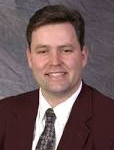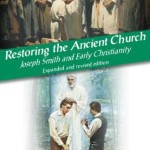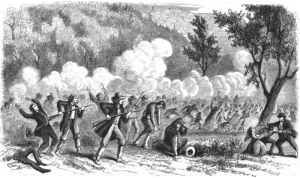Podcast: Download (17.2MB)
Subscribe: RSS

 Martin Tanner who is the host of “Religion Today” on KSL FM 102.7 and AM 1160 interviews Barry R. Bickmore about his book “Restoring the Ancient Church: Joseph Smith and Early Christianity.” In this interview brother Bickmore relates how the teachings of the early Church are reflected in the Church of Jesus Christ of Latter-day Saints.
Martin Tanner who is the host of “Religion Today” on KSL FM 102.7 and AM 1160 interviews Barry R. Bickmore about his book “Restoring the Ancient Church: Joseph Smith and Early Christianity.” In this interview brother Bickmore relates how the teachings of the early Church are reflected in the Church of Jesus Christ of Latter-day Saints.
Professor Bickmore will be appearing at this year’s FairMormon Conference on August 7 & 8 at the Utah Valley Convention Center in Provo, Utah. For more information and to purchase tickets, click here.
In the second half of his show Martin Tanner interviews Craig Foster about his second book on Mormon polygamy. “The Persistence of Polygamy: From Joseph Smith Martyrdom to the First Manifesto, 1844 – 1890.
Both book are available from the FairMormon Bookstore:
Restoring the Ancient Church: Joseph Smith and Early Christianity.
The Persistence of Polygamy From Joseph Smith Martyrdom to the First Manifesto 1844 – 1890
This broadcast originally aired on the 2nd of March 2014.
The views and opinions expressed in this podcast may not represent those of the Church of Jesus Christ of Latter-day Saints or that of FairMormon.




